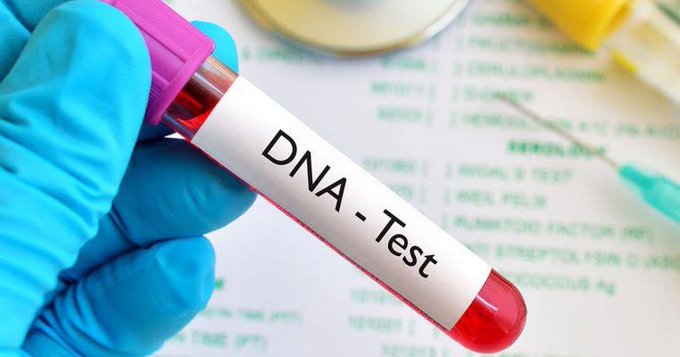A 2025 DNA survey conducted by Nigeria’s leading DNA testing centre, Smart DNA Nigeria, has revealed that 64% of Nigerian firstborn sons are more likely to fail paternity tests.
Smart DNA Nigeria also revealed that the 2025 DNA survey showed that 1 in 4 Nigerian men tested were not the biological fathers of their children.
The data showed that 25% of paternity tests conducted in Nigeria return negative results, meaning 1 in 4 men tested are not the biological fathers of the children they assumed were theirs.
This also comes as DNA testing surged to 13.1 percent in 2025.
According to the survey, the surge in DNA testing was not only due to family drama but also because of the mass emigration wave in Nigeria.
The survey noted that many fathers are doing DNA testing because of visa applications, dual-citizenship verifications, and family reunification abroad.
Part of the survey reads: “Men remain overwhelmingly at the center of the paternity inquiry ecosystem, accounting for 88.2% of all test initiations. This near-monopoly on demand reflects a society where women are often excluded from questioning lineage, and men shoulder both the emotional and financial consequences of uncertainty.
“Notably, older men (aged 41 and above) were the most frequent clients, initiating 45.5% of all tests, suggesting that financial stability may empower them to finally confront long-held suspicions. At the same time, the majority of children tested (58.6%) were under the age of five—indicating that in many cases, doubts arise early and parents are acting quickly to establish the truth.
“The gender of the child also appears to matter: 53.8% of those tested were male, highlighting an enduring bias toward confirming male lineage. This may be rooted in traditional views that prioritize the male child in matters of succession and family identity.
“While Lagos continues to lead in testing volume with 69% of all samples, its internal landscape is shifting. The Mainland-to-Island balance has tilted, with Island locations like Lekki and Ajah seeing increased testing activity—likely reflecting the upward mobility of Lagos residents and the growing influence of the Island’s more affluent communities. Top testing locations included Lekki (20.3%), Yaba (15.8%), Ajah and Ikorodu (10.5% each), and Surulere and Ikeja (9% each).
“Ethnic representation within the data offers another layer of complexity. Yoruba clients made up 53% of all testing cases, followed by Igbo clients at 31.3%. Surprisingly, Hausa participation remains minimal at 1.2%, despite their significant population nationally. This disparity may reflect cultural taboos, religious sensitivities, or lower awareness and acceptance of DNA testing in Northern Nigeria.
“The new data also showed that most tests are quiet, personal – and not legally driven. This means that the vast majority of tests—83.7%—were conducted for “peace of mind” rather than legal proceedings. This confirms a hidden but widespread culture of suspicion and silent inquiry into family truths.
“Court-mandated tests, by contrast, made up only 1.4% of cases. Equally telling is that 80% of tests involved only one child, suggesting most clients are focused on a single case of doubt, rather than conducting a blanket investigation across all children. This speaks to the specificity—and often the secrecy—surrounding these tests.”
Commenting on the 2025 DNA survey, the Operations Manager at Smart DNA, Elizabeth Digia, said the surge by 13.1% in 2025 is an indication of growing concerns about paternity fraud and its social implications across the country.
Despite this, Digia called for urgent action on more awareness of DNA testing.
Digia said: “Nigeria lacks specific paternity fraud laws, unlike South Africa, leaving men with little legal recourse when discovering non-paternity after years of financial responsibility.
“Public health campaigns should normalise paternity discussions and integrate DNA testing into pre-marital and family health programmes.
“Misconceptions persist, including beliefs that DNA testing is only for wealthy families or that physical resemblance guarantees paternity.
“Our role is to provide certainty through accurate testing while encouraging sensitive handling of the life-changing information our clients receive.”





